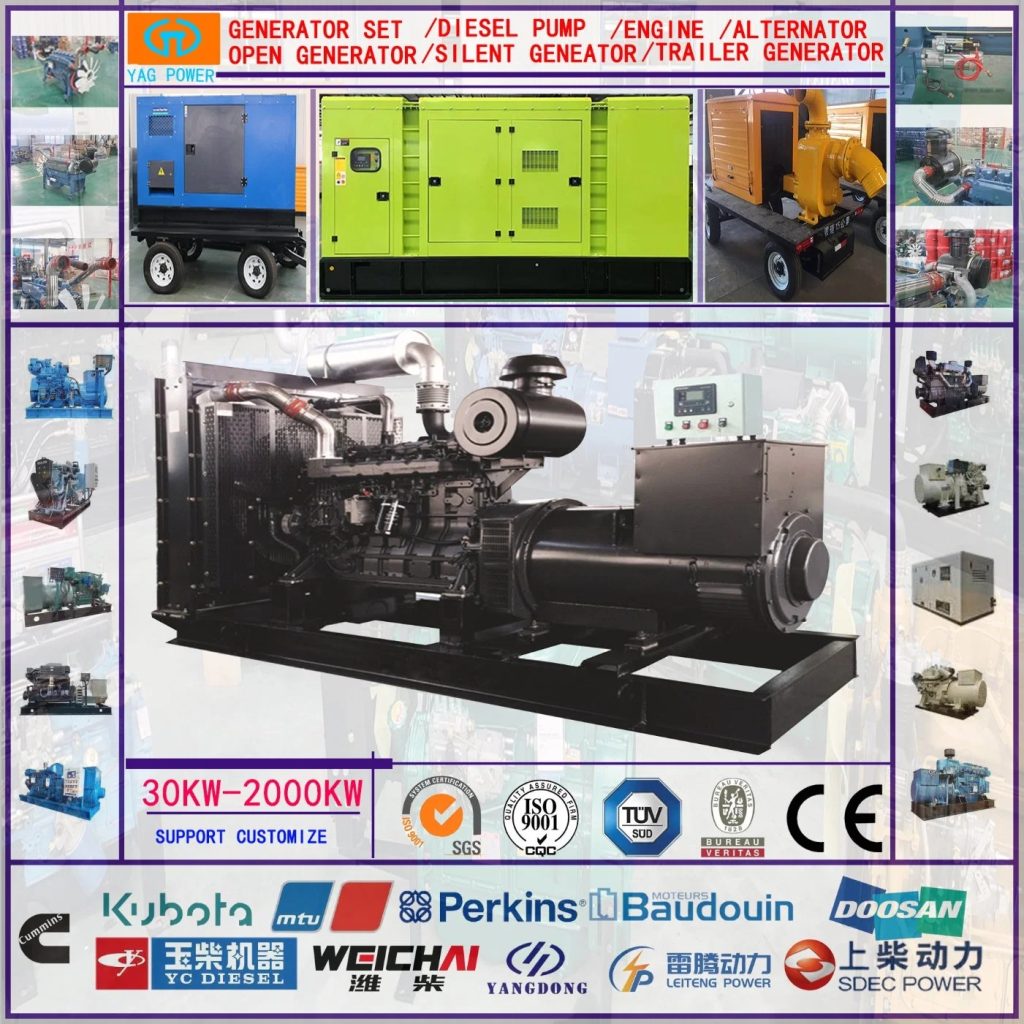Introduction
Altitude testing is a crucial aspect of product development in various industries, including aerospace, automotive, and electronics. Testing equipment and devices at high altitudes help ensure their reliability and performance under extreme conditions. One essential component that plays a significant role in altitude testing is the diesel generator. In this article, we will explore the importance of diesel generators in altitude testing, their key features, and the benefits they offer in powering innovation at high elevations.
Importance of Altitude Testing
Altitude testing involves subjecting products to low air pressures and reduced oxygen levels, simulating conditions experienced at high altitudes. This testing is essential for various reasons, including:
1. Aerospace Industry: Aircraft engines, avionics systems, and other components must be tested at high altitudes to ensure they can operate effectively in low-pressure environments. Altitude testing helps identify potential issues and ensures the safety and reliability of aircraft systems.
2. Automotive Industry: Automotive manufacturers conduct altitude testing to assess the performance of vehicles, particularly in mountainous regions or high-altitude areas. Testing at high elevations helps optimize engine performance, fuel efficiency, and emissions control systems.
3. Electronics Industry: Electronic devices, sensors, and communication systems must undergo altitude testing to validate their functionality in low-pressure environments. Altitude testing helps identify potential failures and ensures the reliability of electronic components.
Role of Diesel Generators in Altitude Testing
Diesel generators play a critical role in altitude testing by providing reliable power supply to testing equipment and facilities. Here are some key reasons why diesel generators are preferred for altitude testing:
1. High Altitude Performance: Diesel generators are well-suited for high-altitude environments due to their robust design and efficient fuel combustion. Unlike gasoline generators, diesel generators can maintain performance at higher elevations where air pressure and oxygen levels are lower.
2. Power Output: Diesel generators offer high power output capabilities, making them ideal for powering heavy-duty equipment used in altitude testing. Whether testing large-scale machinery or multiple devices simultaneously, diesel generators can provide the necessary power without compromising performance.
3. Fuel Efficiency: Diesel generators are known for their fuel efficiency, which is essential for prolonged testing periods at high altitudes. The efficient fuel combustion of diesel engines results in lower fuel consumption compared to gasoline generators, reducing operating costs and environmental impact.

4. Reliability: Diesel generators are renowned for their reliability and durability, making them a trusted power source for critical operations such as altitude testing. Their robust construction and minimal maintenance requirements ensure uninterrupted power supply, even in challenging environments.
Key Features of Diesel Generators for Altitude Testing
When selecting a diesel generator for altitude testing, several key features should be considered to ensure optimal performance and reliability. Some essential features to look for include:
1. High Altitude Operation: Choose a diesel generator specifically designed for high-altitude operation to ensure consistent performance and reliability at elevated locations. The generator should be capable of maintaining power output and efficiency in low-pressure environments.
2. Engine Cooling System: Opt for a diesel generator with an efficient cooling system to prevent overheating during prolonged testing sessions. https://www.lkpowerplant.com/product/special-offer-reliable-high-power-200kw-efficient-diesel-generator-set-for-industrial-use/ is essential for maintaining optimal performance and prolonging the generator's lifespan.
3. Voltage Regulation: Select a diesel generator with precise voltage regulation to ensure stable power output for sensitive testing equipment. Voltage fluctuations can damage electronic devices, so a reliable voltage regulation system is crucial for accurate test results.
4. Remote Monitoring Capabilities: Look for a diesel generator with remote monitoring features that allow you to track performance metrics, fuel levels, and maintenance alerts from a distance. Remote monitoring enhances operational efficiency and enables proactive maintenance to prevent downtime.
5. Environmental Compliance: Choose a diesel generator that meets environmental regulations and emissions standards to minimize the impact on air quality during altitude testing. Opt for models with advanced emission control technologies for cleaner operation.
Benefits of Diesel Generators in Altitude Testing
The use of diesel generators in altitude testing offers several benefits that contribute to the success of test procedures and the reliability of results. Some key benefits of using diesel generators for altitude testing include:
1. Dependable Power Supply: Diesel generators provide a reliable and uninterrupted power supply, ensuring continuous operation of testing equipment and facilities at high altitudes. The consistent power output of diesel generators minimizes disruptions and prevents data loss during critical testing phases.
2. Fuel Flexibility: Diesel generators can run on various fuel types, including diesel, biodiesel, and synthetic diesel, offering flexibility in fuel selection based on availability and environmental considerations. This versatility allows users to adapt to different testing environments and fuel sources.
3. Cost-Effectiveness: Diesel generators are known for their cost-effectiveness in terms of fuel efficiency and maintenance requirements. The lower fuel consumption of diesel engines results in reduced operating costs over time, making them a cost-effective power solution for altitude testing.
4. Longevity and Durability: Diesel generators are built to withstand harsh operating conditions and heavy-duty usage, making them a long-lasting investment for altitude testing facilities. The robust construction and reliable components of diesel generators contribute to their longevity and durability in demanding environments.
5. Environmental Compatibility: Despite being combustion engines, modern diesel generators are designed to be environmentally friendly and compliant with emissions standards. Advanced emission control technologies and fuel efficiency measures reduce the environmental impact of diesel generators during altitude testing.
Conclusion
In conclusion, diesel generators play a vital role in altitude testing by providing reliable power supply to testing equipment and facilities in high-altitude environments. Their high performance, fuel efficiency, reliability, and durability make diesel generators the preferred choice for powering innovation at elevated locations. By selecting a diesel generator with the right features and capabilities for altitude testing, industries can conduct accurate and reliable tests to ensure the safety and performance of products under extreme conditions. Diesel generators continue to be indispensable tools in altitude testing, enabling advancements in technology and engineering across various industries.
